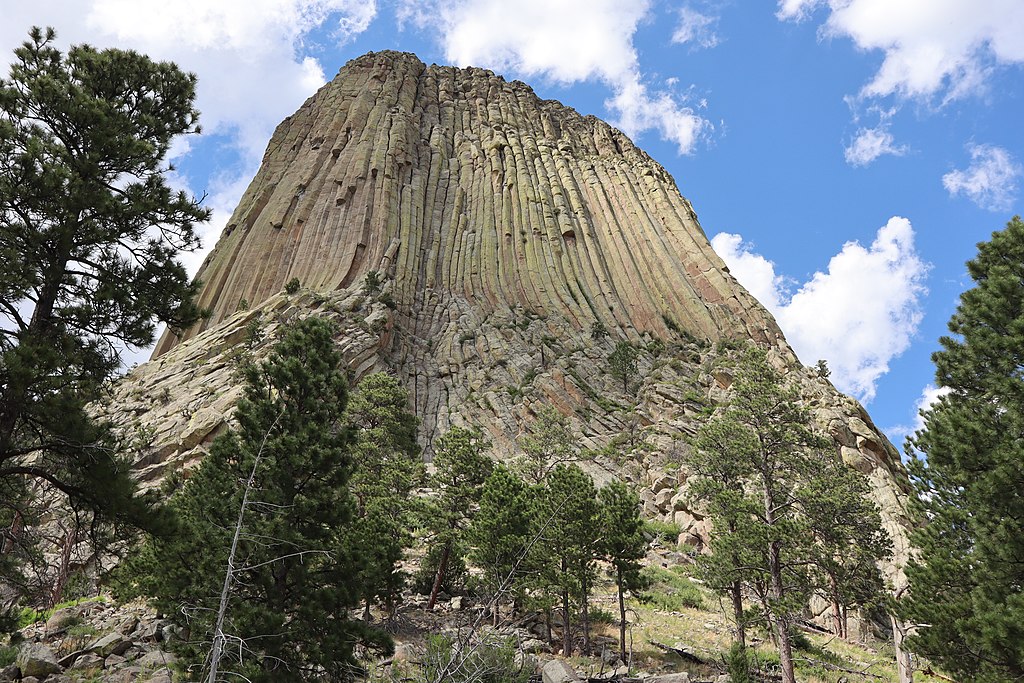
- Details
- By Jenna Kunze
The White House wants to to increase protection of and access to Indigenous sacred sites.
On Wednesday, the White House Council on Native American Affairs (WHCNAA) held a listening session with Native leaders to hear feedback on how to improve the land stewardship and preservation of sacred sites across Indian Country.
The listening session was a follow up to an initiative launched last November by Department of the Interior Secretary Deb Haaland. Following the Tribal Nations Summit last fall, eight federal agencies signed a Memorandum of Understanding, committing themselves to consulting with Native American, Alaska Native, and Native Hawaiian tribes to improve the protection of Indigenous sacred sites.
This week’s session was led by WHCNAA Executive Director Morgan Rodman, and included Department of the Interior Assistant Secretary for Indian Affairs Bryan Newland as well as representatives from the U.S. Departments of Agriculture, Transportation, and Energy, the Environmental Protection Agency, the White House Council on Environmental Quality, the Advisory Council on Historic Preservation, and the Tennessee Valley Authority.
Some of the goals identified were: establish an interagency working group; integrate consideration of sacred sites early into decision-making processes; and highlight the importance of public stewardship to protect sacred sites, according to an Interior press release.
More Stories Like This
50 Years of Self-Determination: How a Landmark Act Empowered Tribal Sovereignty and Transformed Federal-Tribal RelationsMuscogee Nation and City of Tulsa Reach Agreement on Criminal Jurisdiction and Public Safety Collaboration
Panel on Ethical Tribal Engagement at OU Highlights Healing, Research and Sovereignty
Groundbreaking Held for Western Navajo Pipeline Phase I – LeChee Water System Improvement Project
Navajo Citizens Voice Mixed Reactions to Trump’s Coal Executive Order at Public Hearing
Help us tell the stories that could save Native languages and food traditions
At a critical moment for Indian Country, Native News Online is embarking on our most ambitious reporting project yet: "Cultivating Culture," a three-year investigation into two forces shaping Native community survival—food sovereignty and language revitalization.
The devastating impact of COVID-19 accelerated the loss of Native elders and with them, irreplaceable cultural knowledge. Yet across tribal communities, innovative leaders are fighting back, reclaiming traditional food systems and breathing new life into Native languages. These aren't just cultural preservation efforts—they're powerful pathways to community health, healing, and resilience.
Our dedicated reporting team will spend three years documenting these stories through on-the-ground reporting in 18 tribal communities, producing over 200 in-depth stories, 18 podcast episodes, and multimedia content that amplifies Indigenous voices. We'll show policymakers, funders, and allies how cultural restoration directly impacts physical and mental wellness while celebrating successful models of sovereignty and self-determination.
This isn't corporate media parachuting into Indian Country for a quick story. This is sustained, relationship-based journalism by Native reporters who understand these communities. It's "Warrior Journalism"—fearless reporting that serves the 5.5 million readers who depend on us for news that mainstream media often ignores.
We need your help right now. While we've secured partial funding, we're still $450,000 short of our three-year budget. Our immediate goal is $25,000 this month to keep this critical work moving forward—funding reporter salaries, travel to remote communities, photography, and the deep reporting these stories deserve.
Every dollar directly supports Indigenous journalists telling Indigenous stories. Whether it's $5 or $50, your contribution ensures these vital narratives of resilience, innovation, and hope don't disappear into silence.
 The stakes couldn't be higher. Native languages are being lost at an alarming rate. Food insecurity plagues many tribal communities. But solutions are emerging, and these stories need to be told.
The stakes couldn't be higher. Native languages are being lost at an alarming rate. Food insecurity plagues many tribal communities. But solutions are emerging, and these stories need to be told.
Support independent Native journalism. Fund the stories that matter.
Levi Rickert (Potawatomi), Editor & Publisher

